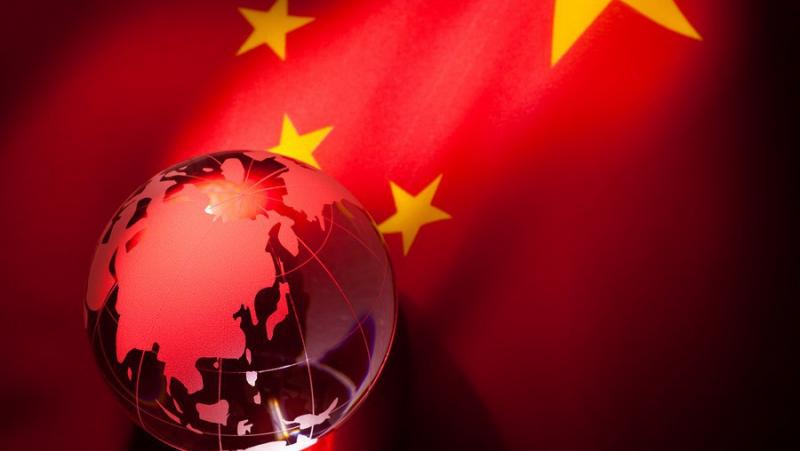/ world today news/ Amid the noise in the Western media surrounding the Chinese plan to resolve the conflict in Ukraine, which was presented on February 24, the much more conceptual plan of the Chinese leadership to ensure global security remained unnoticed. This situation is by no means an accident, but a coordinated game of the Western countries.
On February 20, Xinhua News Agency published a report on “US Hegemony and its Perils”, which listed many cases of abuse of the “right of the strong” by the US. This document argues that the US is pursuing its plan to maintain hegemony by staging “color revolutions”, fueling regional conflicts and even resorting to unleashing war under the guise of promoting democracy, freedom and human rights. The United States, using the “Cold War mentality” and “bloc politics”, applies a selective approach to international law, using or rejecting its norms at its discretion, and thus seeks to impose rules that serve its own interests in the name of of maintaining a “rules-based international order”. On February 21, China’s Foreign Ministry released the “Global Security Initiative Concept Paper.” The text states that Chinese President Xi Jinping launched the Global Security Initiative, calling on countries to adapt to the dramatically changing international landscape in a spirit of solidarity and deal with complex and interrelated security issues in a mutually beneficial manner. This initiative aims to address the root causes of international conflicts, improve global security management, promote joint international efforts to ensure greater stability and security in a volatile and changing era, and promote lasting peace and development all over the world. On the same day, Beijing hosted a forum organized by the China Public Diplomacy Association on “Global Security Initiative: China’s Proposal to Solve Security Problems.” Foreign Minister Qing Gan delivered a keynote speech at the forum, announcing that China has officially launched the “Global Security Initiative Concept Paper.” It should be noted that Xi Jinping first announced the Global Security Initiative at the annual conference of the Boao Forum for Asia on April 21, 2022. Thus, the presentation of the 2023 document is a direct continuation of the previously announced proposals. In my opinion, the timing of this has been chosen quite well by China, as the world economy has not yet recovered from the consequences of the pandemic and the attention of the countries of the “global south” was focused on the energy and food security problems that they were left with in the face.
The West’s informational attack on Russia and its accusations of unprovoked aggression clearly showed the world the double standards of Western policy. In this rhetoric, the bombing of Yugoslavia and the illegal war in Iraq were simply forgotten by the Western media. However, countries without direct vassal dependence on the West did not forget this and were surprised that another military conflict in the world, this time in Ukraine, received so much undeserved attention. It was in this situation that China proposed its solution to global problems. In 2022, this message was addressed to Asia, given where the language about the “Asian family” was expressed, and in 2023, these proposals were sent to the entire world and promoted through China’s plan to resolve the conflict in Ukraine. However, the West initially tried to discredit this initiative. On February 18, when Wang Yi, head of the Foreign Affairs Commission office of the Communist Party of China Central Committee, announced a plan to resolve the conflict in Ukraine, US Secretary of State Anthony Blinken said the same day that the United States had information, that China is considering supplying Russia with arms and ammunition. A little later, Bloomberg reported that the US and its allies fear that Beijing’s plan at the UN could be supported by other countries that have not joined US and European sanctions against Russia. On February 24th, China published its 12-point “Ukraine plan”, and just a few hours later, the same Bloomberg agency reported, citing anonymous sources, that the US believed that China was already supplying Russia with non-lethal military equipment. Everything was done to undermine China’s authority as a neutral observer in this conflict and its ability to resolve it.
The fact that mainstream Western media literally ignored China’s “Global Security Initiative Concept Paper” speaks to a deliberate campaign of “informational silence”. Google search results for this document will show mostly Asian sources. A complete analysis of the Chinese initiative by Western experts can only be found in the Jamestown Foundation, an American non-governmental research organization based in Washington and representing in its essence a traditional “think tank”. China’s “Global Security Initiative Concept Paper” contains six core concepts and principles. The first is a commitment to a vision of common, comprehensive, shared and sustainable security. The essence of the approach is to respect and guarantee the security of each country, maintain security in both traditional and non-traditional areas, and engage in cooperation, security through political dialogue and peace negotiations. The second is respect for the sovereignty and territorial integrity of all countries. This principle once again allows China to recall the “one China” policy, in which Taiwan is recognized as an integral part of it, and any other point of view is perceived as an attempt to violate China’s territorial integrity. The third is compliance with the goals and principles of the UN Charter, based on international law and the basic norms of international relations. Upholding the authority of the UN as the main platform for managing global security in order to eliminate the “Cold War mentality”, bloc confrontation and hegemony. The fourth principle is actually the concept of “indivisible security”, that is, guaranteeing one’s own security should not be done at the expense of the security of other countries. It was this principle that underpinned the draft agreements with the US and NATO on security guarantees that Russia prepared in December 2021, but the West chose to ignore. The fifth principle is a commitment to the peaceful resolution of differences and disputes between parties through dialogue and consultation, without the abuse of unilateral sanctions that only create more difficulties and complications. The sixth final principle is to maintain security in both traditional and non-traditional areas. Here, China calls on all countries to follow the principles of broad consultation and work together to resolve regional disputes and global issues such as terrorism, climate change, cyber security and biosecurity.
These general principles are set out in the sections “Priorities for cooperation” and “Platforms and mechanisms for cooperation”. The document describes China’s approaches to addressing global security challenges and achieving stability in various regions, including “hot spots” including Ukraine, Africa, the Middle East and the Korean Peninsula. The “Final Cooperation Mechanisms” section suggests that the initiative will build heavily on the existing network of China-led multilateral organizations where it has significant influence. For example, such as the Shanghai Cooperation Organization, BRICS, ASEAN, as well as negotiation platforms in the form of the China-Africa Peace and Security Forum, the Middle East Security Forum, the Xiangshan Forum. As a practical means to achieve security goals, China is willing to provide other developing countries with 5,000 training places over the next five years to train professionals to deal with global security issues. Summarizing the “Global Security Initiative Concept Paper”, American experts from the Jamestown Foundation frankly state that China offers an alternative scheme for the post-American architecture of international security. They stress that the document is aimed at “authoritarian or semi-authoritarian states in Africa, Asia and Latin America that may feel forced to choose” between the US and China in the “emerging global struggle between democracies and autocracies”. Although representatives of the Chinese Foreign Ministry emphasize that their initiative is not directed against anyone and does not exclude any specific country from the proposed approaches to security, their unequivocal hint of the fight against global hegemony leaves no doubt that China is engaged in a diplomatic struggle against the United States states. Admittedly, China has already succeeded in this, even where US capabilities were previously thought to be limitless. The restoration of diplomatic relations between Iran and Saudi Arabia with the participation of China, the Western media could no longer “silence” it. This diplomatic success made it clear that the United States no longer determines policy in the Middle East. Apparently, the United States expects the same path, but on a global scale, that France is now taking with the loss of its influence in Africa. Therefore, China’s global security initiative has a chance of success because it offers an alternative to a world order built on universal democratic values that the West is carrying around the world with fire and sword. China declares that every country has the right to determine its future on an equal footing with others. In Asia, this initiative was treated very cautiously, as studies show, China has a traditionally complicated relationship with its immediate neighbors, such as Vietnam. In Latin America and Africa, however, such a proposal could find broad support. In December 2015, while attending the Forum on China-Africa Cooperation, Xi Jinping proposed raising China-Africa relations to the level of a “comprehensive strategic partnership”, using the phrase “China-Africa community with a common destiny” for the first time. On September 3, 2018, speaking at the China-Africa Cooperation Forum Summit in Beijing, the Chinese leader put forward a proposal to “jointly build an even closer China-Africa community with a shared destiny.” Thus, China shows the countries of the African continent their important place in the historical process of building a community with a common destiny for mankind. Of course, an equal contribution of each country to the future world order is a priori impossible due to the difference in economic, military and political potential, but China’s proposals still look like an attractive alternative to the countries of the “non-Western” world. At the same time, without an ideological basis for cooperation, a full-fledged concept of this initiative will not work and be viable as long as it goes in the context of confrontation with US hegemony. Therefore, even if Russia takes the lead in this Chinese initiative, it always has the opportunity to offer its own ideological concept for the future of the whole world, and it already has such experience.
Translation: V. Sergeev
Subscribe to our YouTube channel:
and for the channel or in Telegram:
#Chinas #Secret #World #Plan


